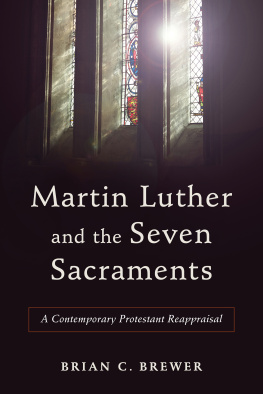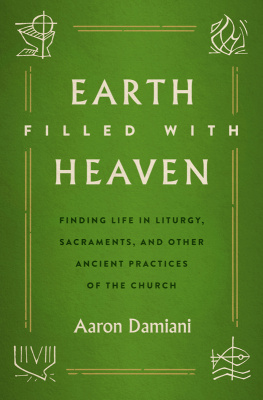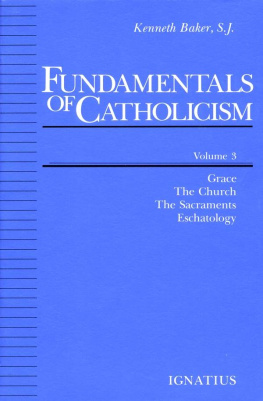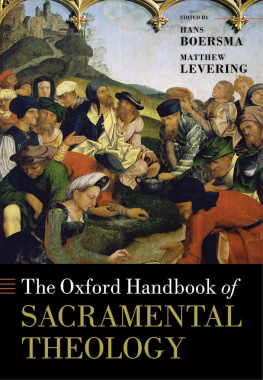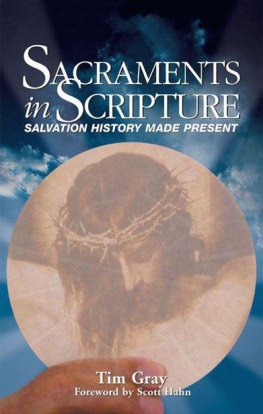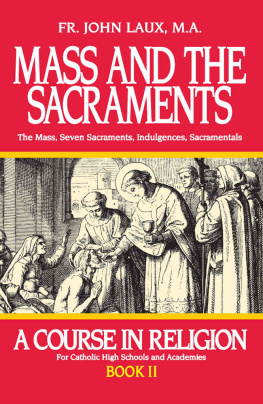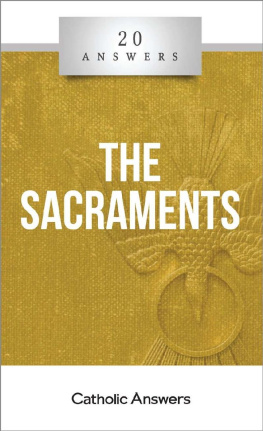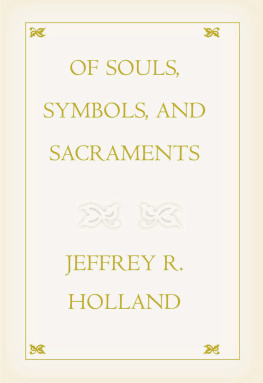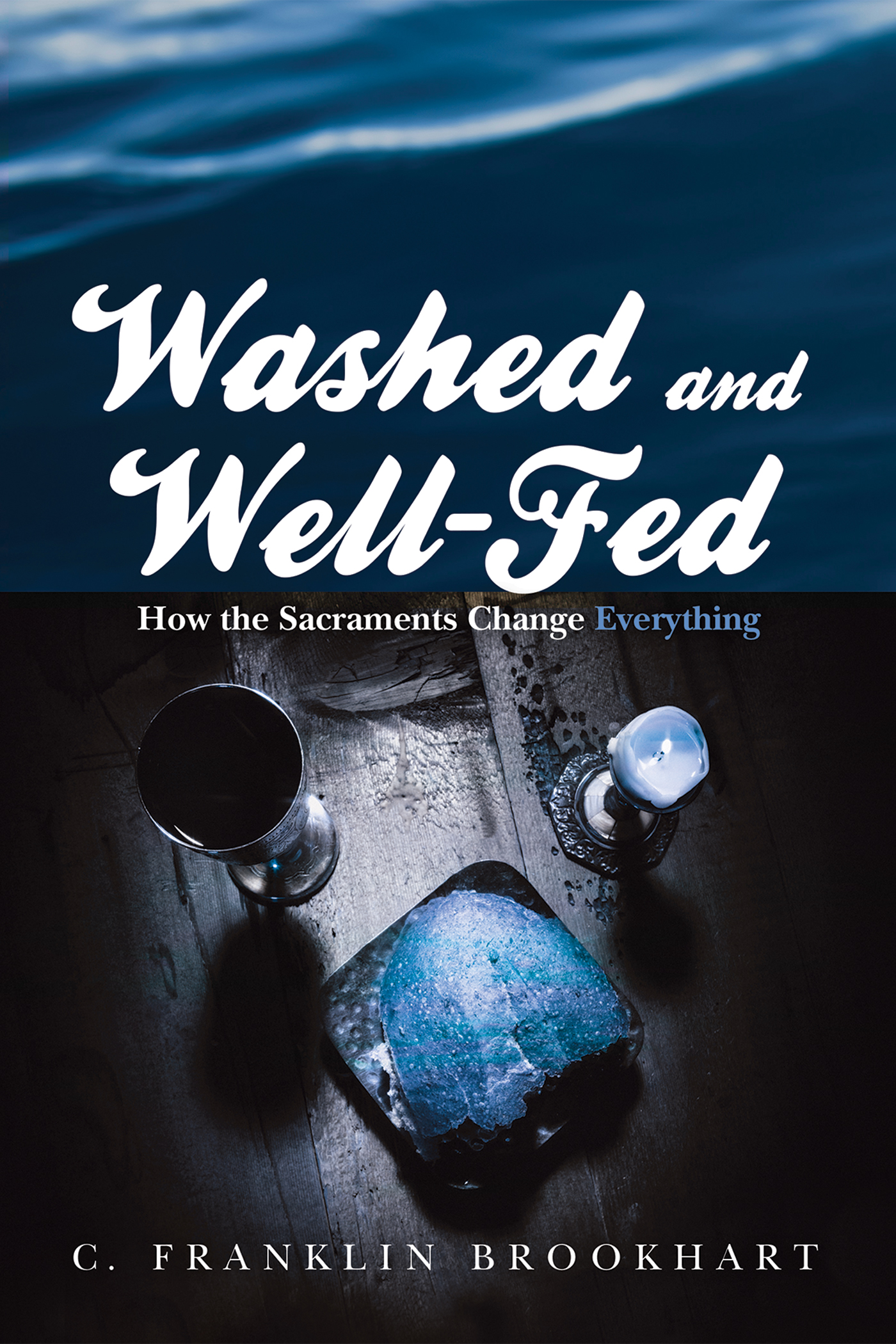I wish to acknowledge the kind assistance of the Very Rev. Kurt Dunkle, Dean and President of The General Theological Seminary, New York City, in the writing of this book. He provided accommodations and opened for me the extensive resources of the Christoph Keller Library. I am very grateful for his hospitality, his leadership, and his friendship. I also thank Patrick Cates, Library Manager, and Melissa Chim, Reference Librarian, for their warm welcome and helpful assistance.
I would be gravely remiss if I did not also acknowledge the support and help of my wife Susan. She inspired me to write and has always supported and encouraged me. She remains the love of my life.
Introduction
G od spoke. And that changed everything. That is what the creation story in the first chapter of Genesis tells us. The world was chaos, without form, empty. Then God spoke, and that speech formed the world. From chaos to order, from emptiness to a creation full of life and beauty, from formlessness to symmetry and stability.
God acted. That changed everything. The first chapter of Johns gospel proclaims that the Word of God became flesh and dwelled among us. The very thing that God wanted to say to the cosmos, the very idea that was most on Gods mind, that Word became a human being named Jesus. And consider what Jesus did. He healed the sick, fed the hungry, raised the dead, freed the afflicted, and spoke good news to the poor. What Jesus said and did looked just like what God would say and do. Then Jesus accepted the way of the cross to show how completely God was committed to humanity. And three days later Jesus was raised from the dead by Gods power as victor over all that separates God and humanity. God acted, and that changed everything.
But where does that leave us? Is there a place for us in Gods story? Does God speak and act on our behalf? The good news of the gospel is a resounding Yes. Whenever the story of Jesus is proclaimed God speaks and everything changes.
When does God act? God acts in many ways, of course. But God has promised to be present dependably and to encounter us fully in the sacraments of holy baptism and holy eucharist. And when those two sacraments instituted by Christ himself are administered, everything changes.
In this book I aim to carry out two tasks. First, we will explore some of the various meanings and implications of the gospel sacraments. This will not represent a complete treatment of the topic. To do that would turn this into a book of generous proportions. Rather, I want this to offer an accessible treatment of baptism and eucharist in such a way that readers can both comprehend and live into the new life of Christ that is offered in the sacraments. If we know what happens to us in baptism and in the eucharist, we can, I firmly believe, be more deeply connected to Jesus and live more fully as his disciples and his servants in this troubled world. In other words, the sacraments change everything about us. First, I hope you will be enabled to understand what is happening in these two sacraments and, second, be empowered to undertake living into the abundant life offered in and through them.
I write as a bishop of the Episcopal Church, but what I offer I hope will be helpful to any Christian or any person considering taking on the commitment of following Jesus. I present what I believe to be a broadly catholic and scriptural view of the sacraments and how to live into them. My basic authority will be the Holy Bible, but I will also draw on other resources.
Diamonds fascinate us. Who can resist turning one to allow the light to shine from each facet? I hope this book will allow the reader to look at various facets of the gospel sacraments, remembering that real value lies in the stone, in Jesus Christ. I hope you will discover more about Crucified and Risen Lord and thereby be enabled to love him more. The sacraments along with scripture and prayer are the basic ways we are pulled into the life of our Lord. And it is with him that we find life, hope, purpose, freedom, and joy.
We have some important things to consider. Lets set forth in the name of Christ. And expect to be changed!
Christ, the Original Sacrament
W hen I was a child and had come down with an illness my mother would look at me and say, I know what you need. Several hours later a wonderful lemon pie would appear. That delicious confection carried my mothers love, concern, and prayer just as clearly as any word. She was right. It was just what I needed.
Sometimes we need more than words and thoughts. Sometimes we need actions and objects that can help us dive deep into ourselves
Now think of the soaring prologue to Johns gospel. In the beginning was the Word, and the Word was with God, and the Word was God. He was in the beginning with God. All things came into being through him, and without him not one thing came into being....And the Word became flesh and lived among us, and we have seen his glory, the glory as of a fathers only son, full of grace and truth (John :, ). The term Word overflows with meanings. It connotes what is on Gods mind, what God wishes to impart to us, what God would communicate if God addressed us, and even what constitutes the structure of Gods mind. That Word took on flesh, the fullness of humanity, and lived among us. That Word is Jesus.
Moreover, in Matthews gospel Jesus is given the title Emmanuel, which means God with us (Matt :). And in the Nicene Creed we weekly recite that Jesus for us and for our salvation...came down from heaven: by the power of the Holy Spirit he became incarnate from the Virgin Mary, and was made man. The Creed uses the theological word that sums up all this, incarnation, being made a human being in every sense.
So now we can say it. Jesus Christ is the original sacrament.
But in saying that we need to be clear about a working definition of sacrament. A resource used by many people is the Book of Common Prayer of the Episcopal Church. In the catechism contained in that book we find this simple and widely accepted description: The sacraments are outward and visible signs of inward and spiritual grace, given by Christ as sure and certain means by which we receive that grace (BCP, p. ). Remember that grace refers to the unmerited and freely given favor and blessing of God. Note especially that sacraments use outward means, signs and symbols that carry and convey the grace of God to us.


